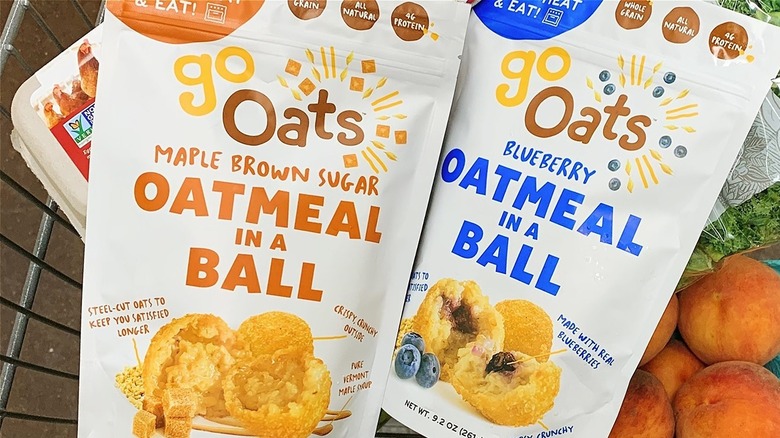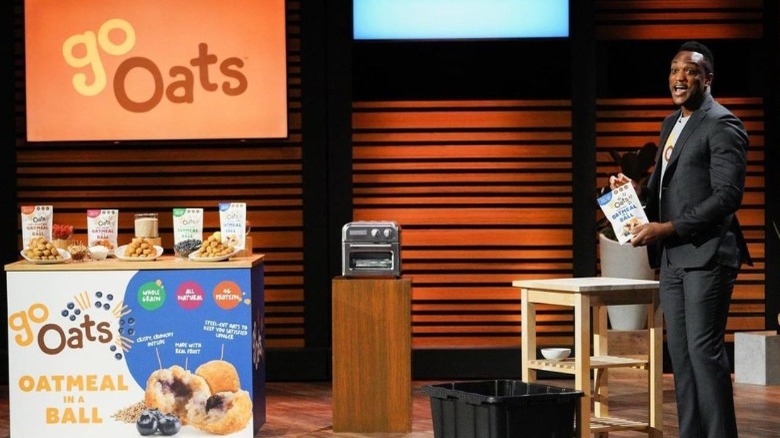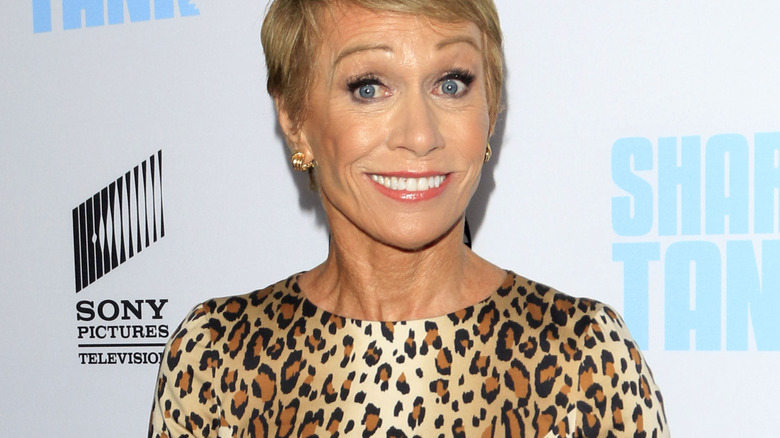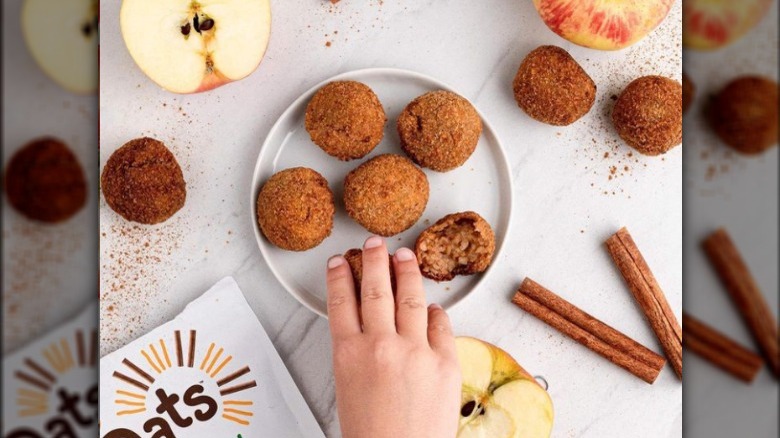What Happened To Go Oats After Shark Tank?
Over the years, ABC's "Shark Tank" has proven to be a successful tributary for many popular food brands. From Cousins Maine Lobster Company to Bantam Bagels, the list of companies that swam away with deals and harnessed success has been plentiful. Although sharks like Barbara Cochran, Mark Cuban, Kevin O'Leary (aka Mr. Wonderful), and others have proven their business acumen, the entrepreneurs need more than a creative idea to dangle for these investors to pounce.
For food brands, it is more than a delectable dish that will earn that monetary investment. From filling a gap on the shelf to satisfying a deeply rooted craving, these concepts must be blended into a potentially successful business. For Go Oats and its founder Nahum Jeannot, the concept was simple. Create a portable, poppable oatmeal bite that conveys the from-scratch spoonful many people remember from childhood (per Shark Tank Recap). Even if your grandma didn't push a bowl of oatmeal on you as a child, the warm breakfast with sweet flavors has become a favorite comfort food.
Go Oats appeared on Season 12 episode 2 of "Shark Tank" when the brand's founder, Nahum Jeannot, requested a $150,000 investment in exchange for 10% equity. He shared the background behind his concept, his personal hustle to bring the product to local Whole Foods stores, and his desire to see the brand expand.
It started with a hotel breakfast request
Nahum Jeannot worked in food service since he was a teenager, starting as a busser and then working his way up to being a chef. While working as head chef for Hyatt Regency in Tyson's Corner, Virginia he was asked to develop a new breakfast recipe. He told ABC affiliate WJLA that he wanted to feature oatmeal like the kind his mom used to make, but that wasn't very easy to carry. This led to him developing a seemingly simple product concept – convenient, portable oatmeal in a ball. The steel-cut oats are combined with a variety of flavors including fruit and Vermont maple syrup. They are sold frozen, and the oatmeal balls can be cooked in a toaster oven, air fryer, or microwave.
The Sharks were impressed with the product samples as well as Jeannot's initiative in getting his product sold in regional Whole Foods Stores and selling $13,000 in product during his first year while also working a full-time job. When COVID-19 struck the hotel business, Jeannot was among the people who got laid off, which freed him up to fully focus on Go Oats. He later told the Fairfax County Economic Development Authority that someone from the Shark Tank team reached out to him about appearing on the show, and he immersed himself in preparing to pitch. During his appearance, Shark Barbara Cochran took a keen interest, though she had questions.
Go Oats landed a deal
During the "Shark Tank" episode, the sharks had concerns that the company did not have sufficient selling margins. While the product had a good concept, it was clear Go Oats needed guidance and Barbara Corcoran stepped up with an offer. She promised help in navigating the company into the deep waters of warehouse stores in exchange for 25% equity. Jeannot considered the offer and countered by offering 15% equity for the $150,000.
The two made a deal where Corcoran receives 20% equity for the $150 grand investment and her help scaling the business. Jeannot told Connections Newspapers that he was hoping for a deal with Corcoran due to her experience with start-up food brands and also that he "knew she had good taste."
Go Oats benefited from the Shark Tank bump, which is a phenomenon Inc. identified after interviewing hundreds of people who pitched during the first nine seasons of Shark Tank. Even the losers saw an immediate bump in sales. In Corcoran's case, he told Connections that his product stock sold out within 48 hours of the "Shark Tank" episode airing. Inc. noted that brands that pitch see an immediate bump, but that doesn't always translate to long-term success. Is Go Oats one of Shark Tank's success stories?
Where are Go Oats now?
After getting a deal on "Shark Tank," the future looked bright for Go Oats. Given that the brand's goal was to get its oatmeal balls onto more store shelves, it appears that it has succeeded. As seen on the brand's website and Instagram page, the frozen oatmeal can be found at Whole Foods, Target, Sprouts, and other stores. In addition, there is a direct-to-consumer option on its website, which sells an 8-pack for $67.99. It appears that the brand has five flavors, including Maple Brown Sugar, Blueberry, and a new Strawberry option.
Overall, the reviews for Go Oats have been positive. While many people appreciate the convenience, the healthy breakfast option seems to be a major selling point. One person commented that she likes the flavor and texture, saying, "I'm not even a morning person but I get up extra early to have time to cook my Go Oats" (per Instagram). Although some people can debate the convenience of heating these balls from frozen versus making a bowl of oatmeal, the portability factor can be helpful. For someone who is willing to try out a different take on a classic breakfast option, a bag of Go Oats is waiting to be opened.



